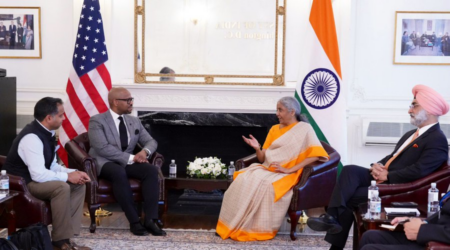Beijing: China’s new foreign minister, Qin Gang described the US’s “Indo-Pacific Strategy” as an effort to “gang up” against Beijing, in what was seen as a direct response to the China-focused joint statement issued by the Quadrilateral Security Dialogue, or Quad, foreign ministers in New Delhi.
“The US’s ‘Indo-Pacific Strategy’ seeks to gang up to form exclusive blocs, stir up confrontation, and undermine regional integration,” Qin said at a press conference – his first after becoming minister – on the sidelines of China’s ongoing parliament session in Beijing.
Issued jointly on March 3 by the foreign ministers of Australia, India and Japan and the US, the Quad statement said the meeting “…reaffirms the Quad’s steadfast commitment to supporting a free and open Indo-Pacific, which is inclusive and resilient”.
The Quad statement did not mention China by name but several paragraphs in it, which mentioned South and East China seas, “militarization of disputed features”, and the group’s commitment to supporting the “Pacific Island countries” were all clearly in context of Beijing’s expanding influence in the region.
China claims nearly the entire South China Sea but that claim is disputed by several maritime neighbors including Philippines, Brunei, Malaysia and Indonesia besides Vietnam and Taiwan (which China says is a breakaway region); the Senkaku Islands in the East China Sea are disputed between China and Japan.
Beijing has been repeatedly accused of militarizing uninhabited islands and reefs in the South China Sea despite several of them being disputed. The Quad statement also said the four countries were “…Reaffirming our consistent and unwavering support for ASEAN centrality and unity, and the ASEAN-led architecture- including the East Asia Summit and ASEAN Regional Forum”.
Qin, for one, said Quad was an effort to “encircle China”, adding: “Such an attempt will only disrupt the ASEAN-centered open and inclusive regional cooperation architecture, and undermine the overall and long-term interests of regional countries. It is bound to fail.”











